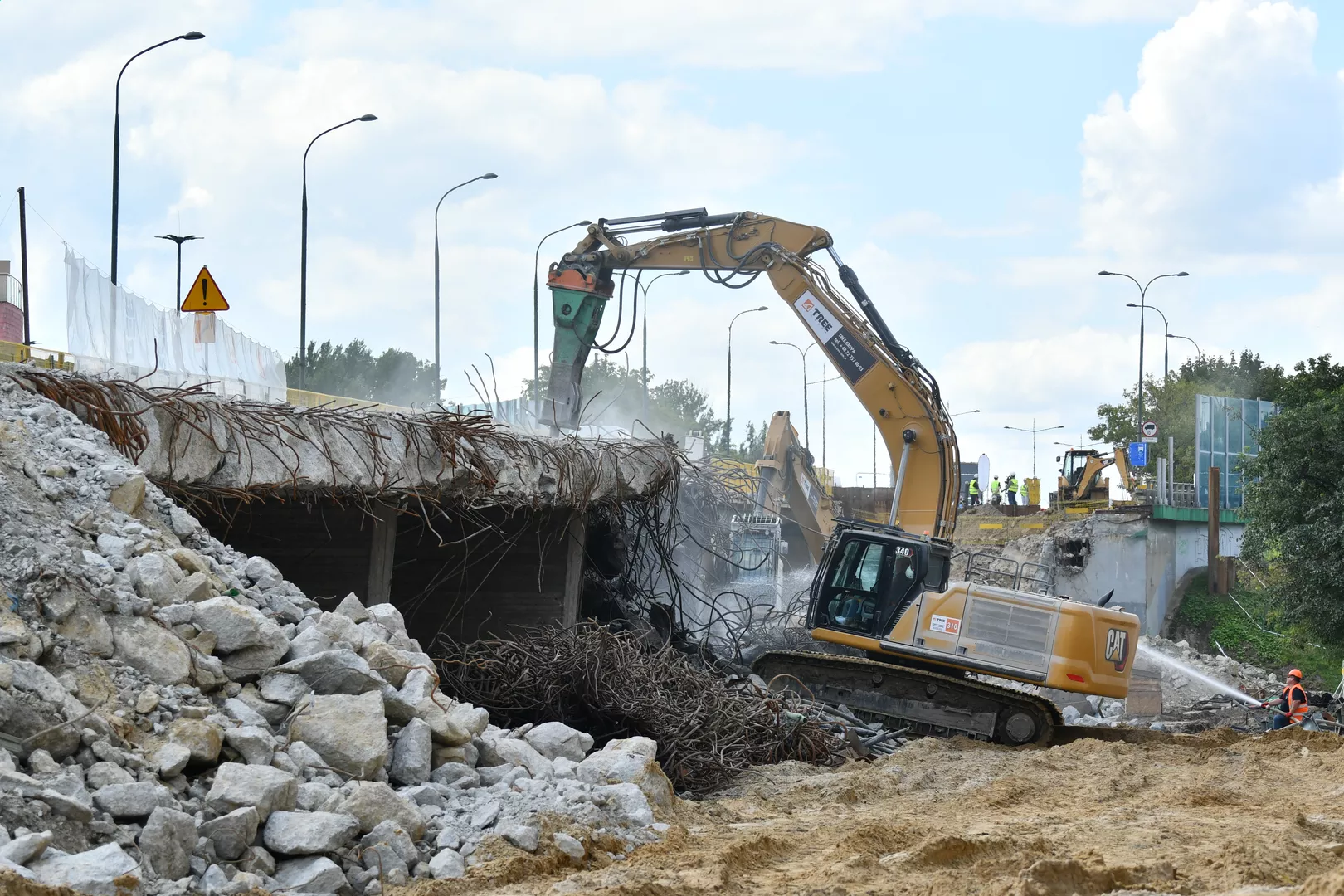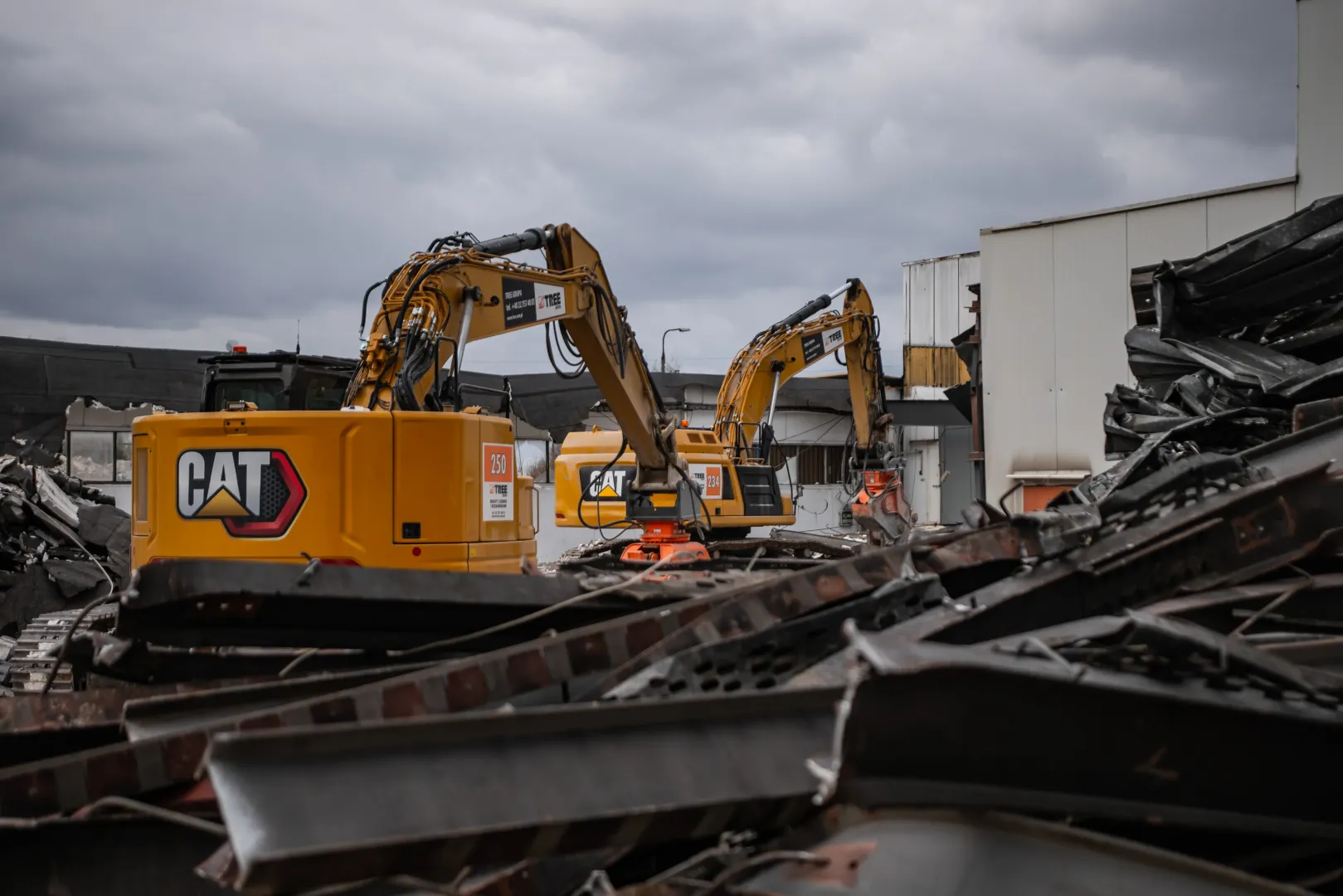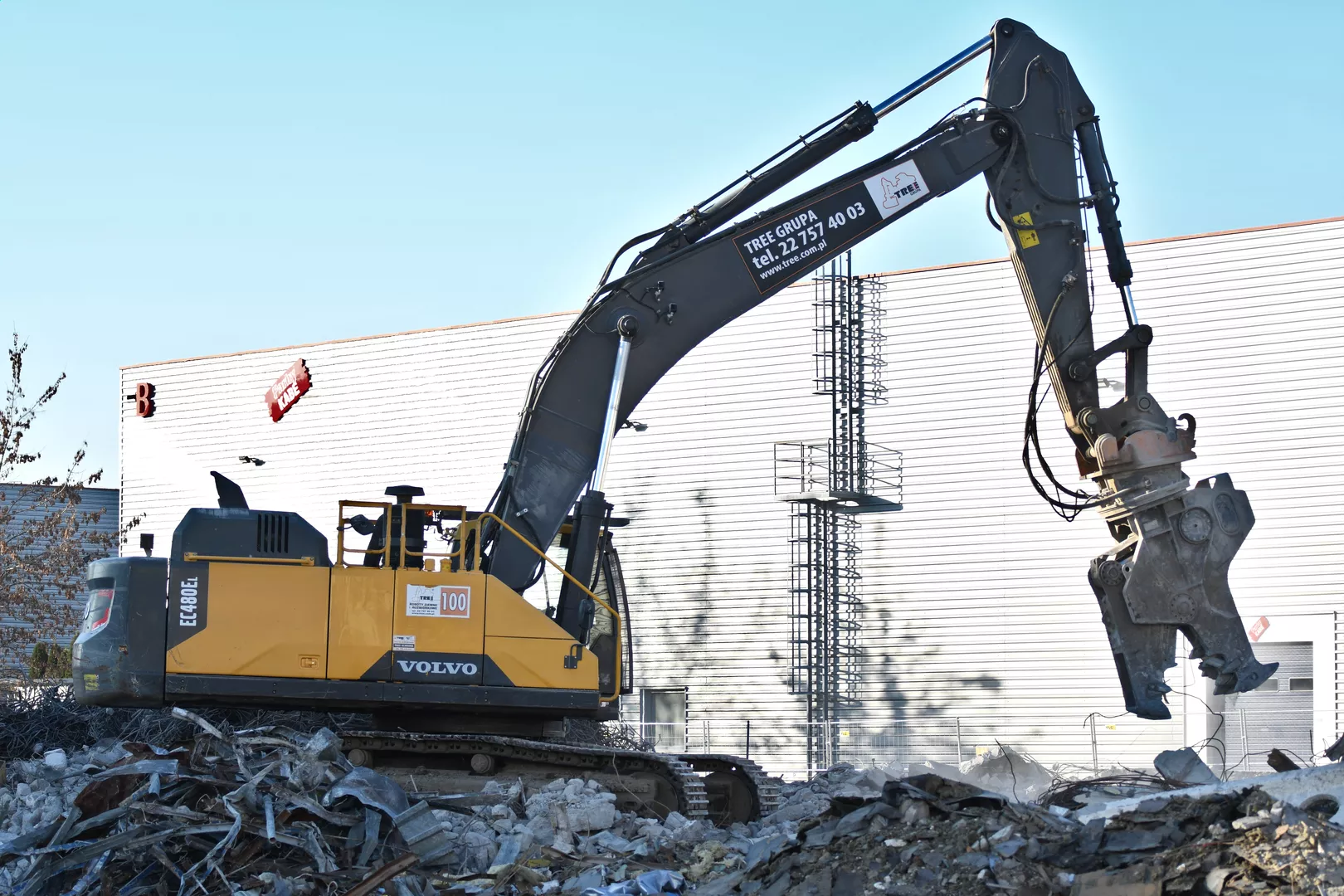
Demolition and Environmental Protection - Regulation-Compliant Demolition Methods in Warsaw
A comprehensive guide on conducting demolitions in compliance with environmental protection regulations in Warsaw and the Mazovian Voivodeship in 2025. Learn about requirements, procedures, and best practices for ecological demolition.
Demolition and Environmental Protection - Regulation-Compliant Demolition Methods in Warsaw
Introduction
Building demolition in Warsaw in 2025 is subject to stringent environmental regulations that differ significantly from those in effect just a few years ago. New EU regulations that came into force in 2024, along with local regulations of the City of Warsaw, have created a complex network of requirements that must be met before and during demolition work.
In this guide, we will discuss all key aspects of ecological demolitions compliant with current regulations, from required documentation, through methods of limiting environmental impact, to proper management of demolition waste.
1. Current Legal Requirements for Demolitions in Warsaw (2025)
National and EU Regulations
Since January 2025, all demolition work in Poland must comply with EU Directive 2023/67 on the circular economy in the construction sector. This means that:
- A minimum of 80% of demolition materials must be recycled or reused
- Detailed inventory of materials is required before demolition
- It is necessary to develop a demolition waste management plan
- Detailed records must be kept of waste transferred for further processing
Warsaw Local Regulations
Warsaw introduces additional restrictions, particularly regarding:
- Dust emission limitations (November 2024 anti-smog resolution amendment)
- Noise restrictions (time zones and decibel limits)
- Protection of urban greenery
- Additional requirements for areas under conservation protection or near monuments
2. Required Documentation Before Starting Demolition Work
Before starting demolition work in Warsaw, it is necessary to obtain the following documents:
- Demolition permit - standardly issued by the district office
- Environmental impact assessment - required for larger buildings or locations near protected areas
- Demolition waste management plan - containing detailed analysis of types and quantities of waste and methods of their management
- Building material audit - required under new EU regulations
- Dust emission reduction plan - compliant with Warsaw's 2024 anti-smog resolution
- Notification to the Provincial Inspectorate for Environmental Protection - at least 14 days before starting work
New Requirement from 2025: Digital Material Passport
Since March 2025, all buildings subject to demolition in Warsaw must have a digital material passport. This is an electronic database containing information about all materials used in the building, including potential contaminants and hazardous materials.
3. Methods of Reducing the Environmental Impact of Demolitions
Dust Control
According to new regulations, in Warsaw it is mandatory to use:
- High-efficiency water curtains
- Automatic sprinklers
- Anti-dust screens at least 2 meters higher than the highest point of the demolished building
- Fog cannons at the demolition site
- Sealed chute systems for floor-by-floor demolitions
Noise Reduction
Demolitions in Warsaw's residential zones must meet the following requirements:
- Work may only be carried out between 8:00 AM and 6:00 PM on weekdays
- Noise levels cannot exceed 85 dB at 10 meters from the demolition site boundary
- The use of acoustic screens is mandatory
- Equipment with current noise emission certificates must be used
Groundwater Protection
To prevent groundwater contamination:
- It is required to secure the ground with an impermeable membrane in rubble storage areas
- Installation of settlement tanks and oil separators is necessary
- Groundwater quality monitoring must be conducted before, during, and after the works
4. Selective Demolition - Requirement from 2025
Since January 2025, all demolitions in Warsaw must be conducted using the selective demolition method. This means:
- First stage: removal of equipment, installations, and finishing elements
- Second stage: dismantling of building elements suitable for reuse
- Third stage: segregation of remaining structural elements according to material type
Benefits of selective demolition:
- Higher level of material recovery (up to 95%)
- Lower waste disposal costs
- Reduced air and water pollution
- Possibility of selling recovered materials
5. Demolition Waste Management
According to the waste management hierarchy, the following order should be applied:
- Reuse - elements such as doors, windows, roof tiles, or structural beams
- Recycling - processing of materials that cannot be reused
- Energy recovery - burning of materials not subject to recycling
- Landfill - only as a last resort for waste that cannot be managed otherwise
New Possibilities for Rubble Management in Warsaw (2025)
Since 2025, three modern construction rubble processing plants operate in Warsaw:
- Building Materials Recycling Center in Targówek
- Construction Waste Processing Plant in Wilanów
- Mobile crushing and separation installations (possibility of on-site processing)
6. Hazardous Materials - Special Procedures
Before demolition, it is necessary to identify and remove hazardous materials such as:
- Asbestos
- PCBs (polychlorinated biphenyls)
- Lead (paints, installations)
- Mercury (in switches, thermostats)
- Freon and other refrigerants
Asbestos Removal Procedure in Warsaw
If asbestos is detected, you should:
- Report its presence to the district office
- Hire a company with asbestos removal certification
- Notify the County Construction Supervision Inspectorate
- Ensure air monitoring during asbestos removal
- Obtain documentation confirming proper disposal
7. Cooperation with Local Communities
New Warsaw regulations require:
- Informing residents of surrounding buildings about planned works (at least 14 days in advance)
- Providing a public work schedule
- Designating a person responsible for contact with residents
- Addressing reports and complaints within 48 hours
8. Monitoring and Reporting
During demolition work in Warsaw, the following is required:
- Continuous monitoring of PM10 and PM2.5 dust levels
- Regular noise measurements
- Keeping a waste management journal
- Photographic documentation of individual work stages
- Monthly reporting to the Department of Environmental Protection
9. Warsaw Ecological Demolition Subsidy Program
Since March 2025, Warsaw offers subsidies for ecological demolitions of up to 30% of eligible costs if:
- A material recovery level above 90% is achieved
- Innovative dust emission reduction methods are applied
- A minimum of 30% of recovered materials will be used within the city
10. Practical Tips for Investors
- Plan the demolition well in advance - the process of obtaining all necessary permits can take even 4-6 months
- Hire a waste management specialist - new regulations are complex and require expert knowledge
- Consider conducting a pre-demolition audit - this will help identify materials that can be recovered and sold
- Include environmental costs in the budget - new requirements increase costs by about 15-25% compared to traditional methods
- Establish cooperation with local collection points for recovered materials - this can significantly reduce transportation and disposal costs
Summary
Conducting demolitions in Warsaw in 2025 requires detailed planning and knowledge of current environmental regulations. Although meeting all requirements involves higher initial costs, the long-term benefits - both financial and environmental - make these investments worthwhile. Following the described procedures will help avoid high penalties (which since 2024 can reach up to 500,000 PLN) and contribute to the protection of the natural environment.
Tree Group offers comprehensive support in ecological demolitions in Warsaw and the entire Mazovian Voivodeship, ensuring compliance with all current legal requirements.
Tags
Share this guide
About the author
mgr inż. Piotr Nowicki
Demolition Department at Tree Group Specialist
Category
Demolition
Reading time
15 minutes
Publication date
May 21, 2025
Similar guides

Turning off the lever on excavators with AdBlue system - instructions for operators
The AdBlue system is a key component of modern construction machinery, designed to reduce harmful emissions of nitrogen ...

Comprehensive Guide to Building Demolition in Warsaw - Procedures and Formalities
A complete guide explaining all formal procedures related to building demolition in Warsaw, from obtaining permits to po...